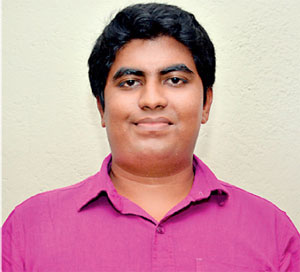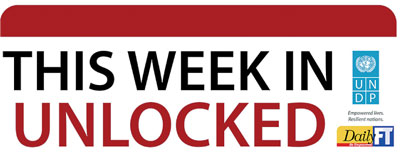Tuesday Feb 17, 2026
Tuesday Feb 17, 2026
Thursday, 25 February 2016 00:02 - - {{hitsCtrl.values.hits}}

By Thamara Kandabadda
Mother Lanka commemorated her 68th anniversary of national independence on 4 February. The usual arrangements were made – the celebration, the parades, the complete package. Except for one unusual element – the National Anthem was sung in Sinhala AND Tamil. As one would have expected, the internet exploded within seconds.
Self-professed “patriots” emerged out of nowhere. The case was strong against supporters of the Tamil rendition. Facebook became a battlefield amidst the racial slur, proclamations of ethnic superiority and everything in between.
We’re Sri Lankans
My mind races back to my time in Grade 4 at school. I distinctly remember the lesson “Api Lakwesiyo – We’re Sri Lankans”. If my memory serves me right, this was the first time in school when we were taught comprehensively about different ethnicities, religions and cultures in Sri Lanka. I remember my teacher repeatedly telling us the importance of doing so.
Having being raised in a Buddhist household I found some of the concepts to be alien to me. As a child, my daily interactions were mainly with the Sinhala Buddhist majority at Ananda College – this didn’t help either. I remember asking myself why on earth we were made to learn about other religions and such (forgive my ignorance – I was but a child back then).
Several years later I found myself reading parts of the Bible, the Quran and the Bhagavad Gita. The first day I brought a Bible home, my mother insisted that I return it immediately, but I kept it anyway (I still have it with me). I wondered, if it was good enough to be taught at school, why did my mother think otherwise?
I found the same reluctance among some of my friends too. Back then, I had not even heard of the word “pluralism” but in my own way I understood the concept in the context of Sri Lanka. This understanding led me to study diplomacy, international political and strategic affairs later in life. All along, if there’s one thing I realised about the ways of the world, is that pluralism does not survive for long be it cultural, political, religious or otherwise.
"We have conveniently opted vandalise social media, thus degrading the legitimacy of the medium. Considering the fact that traditional media is extremely unpopular among youth compared to social media and the internet, the damage done by a single misinformed post on a platform like Facebook can have repercussions far beyond our control. In a way, the tools that were supposed to connect and harmonise the world are now playing a part in tearing it apart. The very foundations of pluralism are shaken by it. Where we should have harnesses social media to promote equality, we’re creating a greater disconnect"
Ongoing wave of racial slur
With incidents such as the recent backlashing of the Tamil rendition of our National Anthem, I wonder, is pluralism a myth we’re made to believe in?
The National Anthem is just another phase in an ongoing wave of racial slur. Where is this hatred coming from? Where is it headed? Some say that it’s purely for political and financial gain. How true can this be? If it is, how unprincipled are we to compromise peace for unethical gain? What are we, after all? A generation of degenerates?
The fact that seeds of extremism can so easily be planted among our youth is alarming. Throughout history, society has had a way of swaying its impressionable youth to detrimental ends. Have things not changed much for Millennials after all?
According to the Department of Census and Statistics (2012), 23.2% of Sri Lanka’s population is between the ages 15-29. This is the age group generally recognised as youth in the Sri Lankan context. This number, spread unevenly across urban and rural settings, proportionally represents the different ethnic groups in Sri Lanka. The number is declining according to research, and one can argue that it would mean declining influence of youth in the general affairs of the nation.
However, with connectivity becoming easier than ever, our young people are using online media to great effect for spreading ideas and sharing opinions. One recent example of significant youth participation in crucial matters of governance was the online activism for last year’s presidential elections.
Widespread online discourse on such matters and even more recent issues such as religious extremism (e.g. Bodu Bala Sena dynamics), misguided cultural politics (e.g. backlashing of the operatic rendition of Danno Budunge) have shown to pave way to aggression and tension rather than reconciliation.
At huge cost
The way I see it, the cost is huge. We have conveniently opted vandalise social media, thus degrading the legitimacy of the medium.  Considering the fact that traditional media is extremely unpopular among youth compared to social media and the internet, the damage done by a single misinformed post on a platform like Facebook can have repercussions far beyond our control.
Considering the fact that traditional media is extremely unpopular among youth compared to social media and the internet, the damage done by a single misinformed post on a platform like Facebook can have repercussions far beyond our control.
In a way, the tools that were supposed to connect and harmonise the world are now playing a part in tearing it apart. The very foundations of pluralism are shaken by it. Where we should have harnesses social media to promote equality, we’re creating a greater disconnect.
Pluralism in the digital age
This leads us to a simple question, to which the answer is complex beyond comprehension for most of us. What is pluralism in the digital age?
True enough, the integrity of the social web is arguably threatened by machine-made filter bubbles. But it’s the man-made filter bubbles that frighten me. The sheer reluctance to think beyond a norm and to explore the world for what is really is makes for a perfect case of frogs in a well. It is easier than ever today to learn about what Thai Pongal is all about or what Ramadan is really meant for. Yet we choose to ignore. We seem to have forgotten the importance a collective society where cultures interact, mingle and borrow from each other.
So, is pluralism a myth? Is it possible at all to create a pluralistic society?
I will leave this question for you to ponder over. The next time you post something on social media or present something in a forum, think twice about how informed your opinion is. Make way for discussion, not aggression. Make way for sharing knowledge, not tension. Take time to learn about the fellow citizens beside you. Take time to care.
That, is the path to reconciliation.
(UNLOCKED is a space for Sri Lankan youth to express their views and opinions on development with the aim of creating positive change in the world. The views expressed in the blogs are solely those of the authors. UNDP Sri Lanka and Daily FT does not represent or endorse the views expressed in these blogs. Read more about the UNLOCKED initiative www.lk.undp.org.)